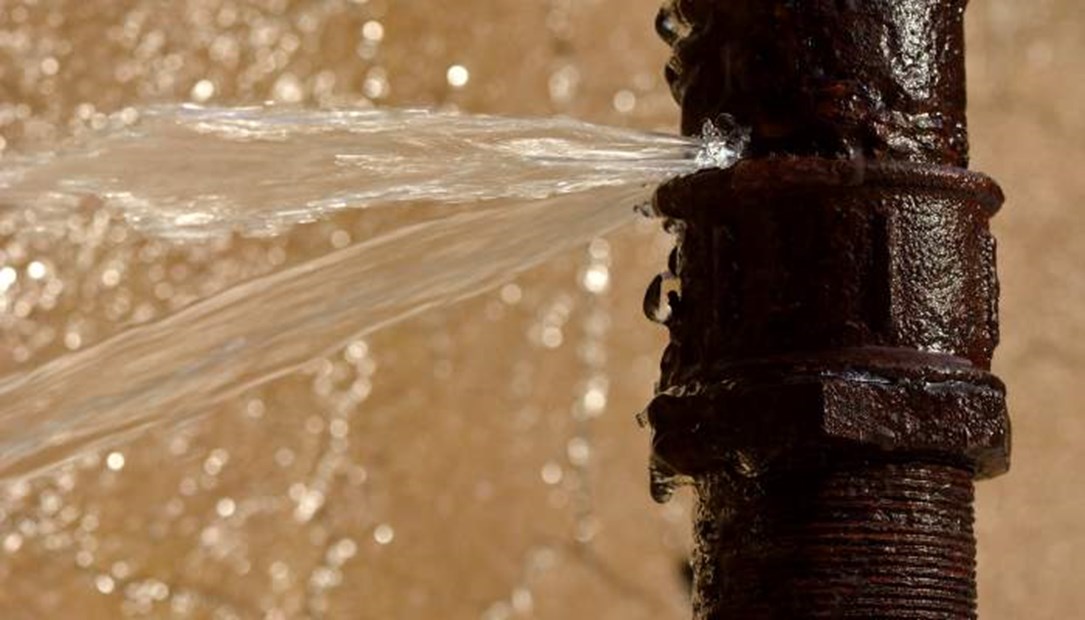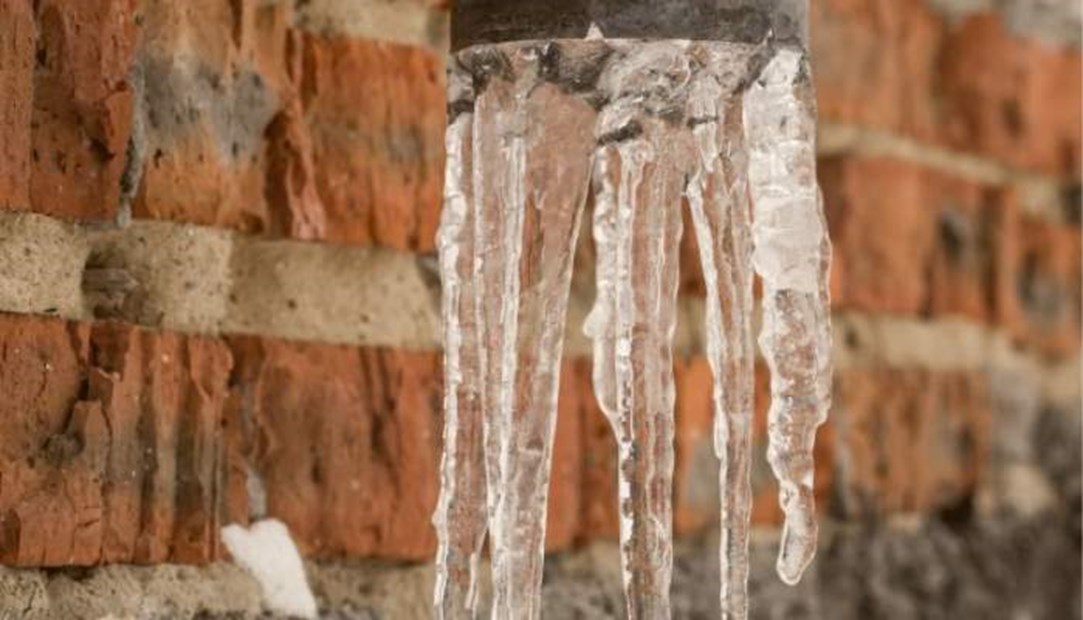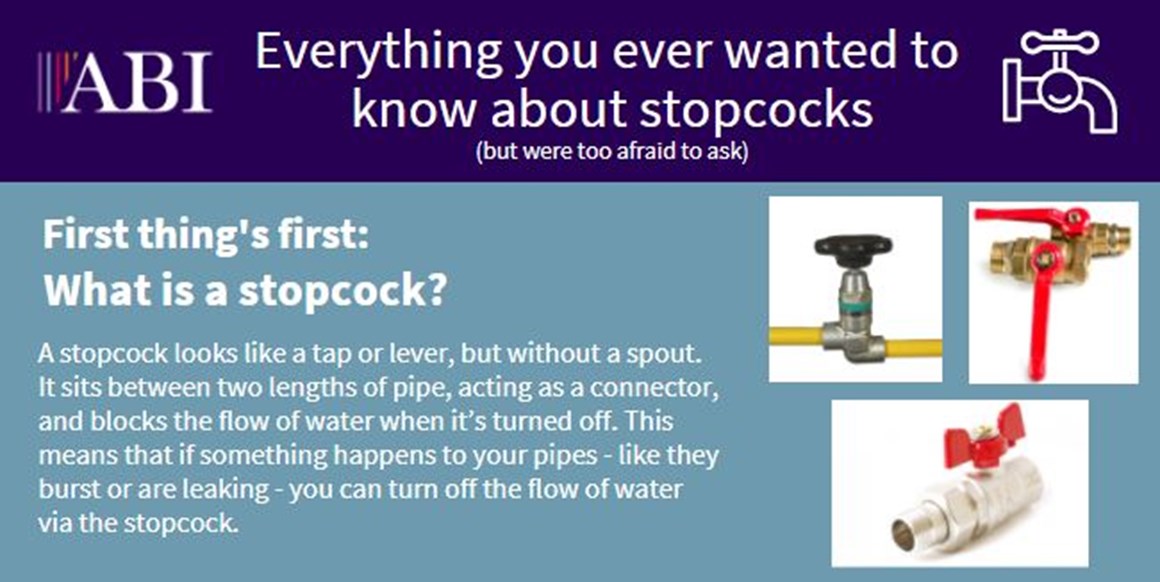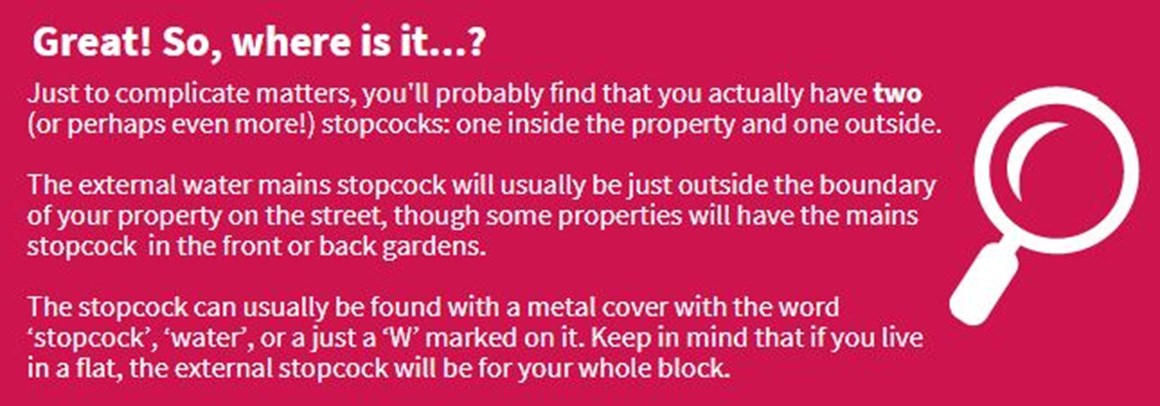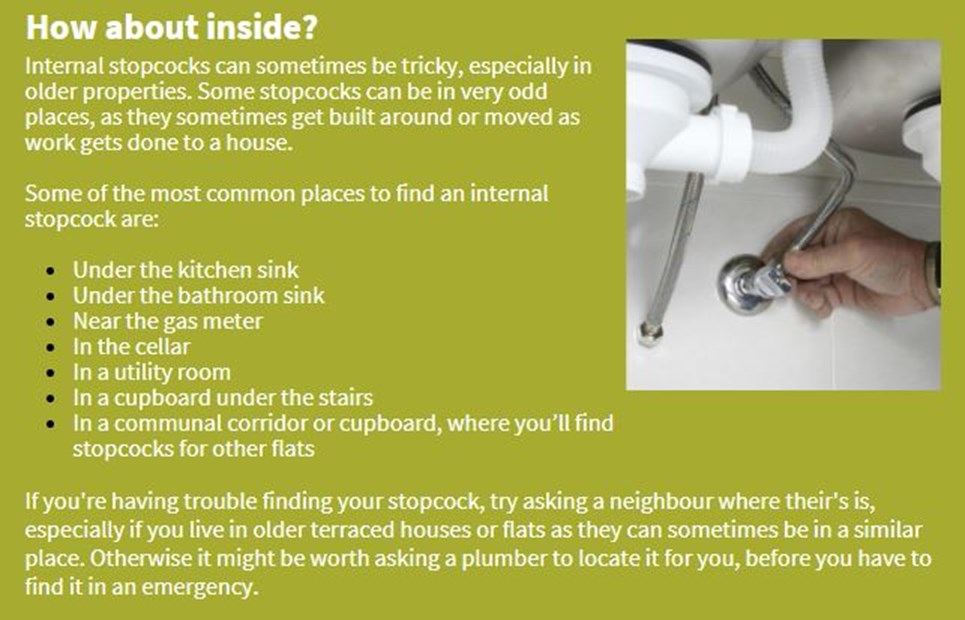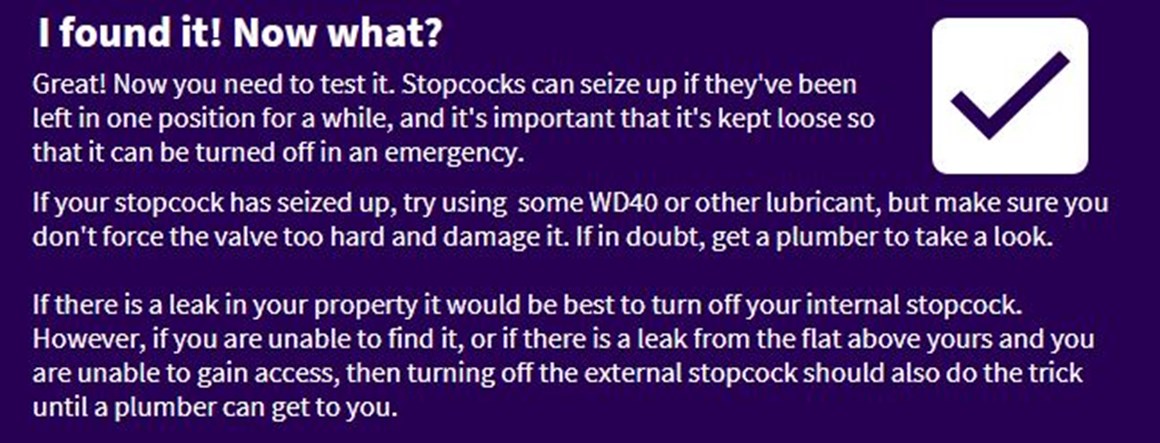How can I prevent an ‘escape of water’ happening in my property?
Some steps you can take to minimise the chances of an incident happening this winter are outlined below:
The best ways to maintain your pipes all year round are:
1. Stopcocks – know where these are and make sure that you test them regularly as they often seize up. If there is an escape of water / water leak in your home, turning off the stop cock asap can help to limit the level of damage caused. Find out more about stopcocks here.
2. Consider fitting a leak detection device which will monitor your usual water use and turn off the water if it suspects a leak. Use a plumber or a professional to install these types of devices. Some insurers may offer help with the installation of a leak detection device and may also take this into account when pricing your cover.
3. Get a professional to install any new appliances which require plumbing.
4. Where possible, regularly check the pipes where your appliances are plumbed in for any looseness, leaks or drips. In areas where pipes are covered but that you still have access to (e.g. behind removable bath panels, toilet cistern panels and underneath kitchen units, where accessible,) it’s a good idea to take a look every now to make sure there aren’t any small leaks which could become major.
5. Consider what you are putting down your drain, and make sure that you clean drains regularly if you suspect a blockage. Substances such as fats and oils from cooking, produce stickers, baby wipes, sanitary products and even hair can all cause clogs in drains and toilets. You can see a comprehensive list of what not to put down the drain here.
6. Its best to use appliances when you are at home as opposed to setting them on a timer – that way if there is a major deluge of water or leak, you will spot it before it damages your home.
7. Check for leaks from taps, toilets, sinks, baths and showers and make sure you replace any damaged sealant, tiles or cracked shower trays as soon as you spot it.
8. If you are doing any drilling/DIY, make sure you know where any water pipes are before you put that drill into the wall (you can get a stud finder to help you locate them).
9. You can use your water meter to check for any leaks – make sure nothing is using any water in the property, then turn your stopcock off and note the reading. Check again after 1-2 hours to see if the meter reading has changed. If so, it’s likely that there is a leak somewhere.
10. When leaving the property unoccupied for any length of time, it's best to shut down the water supply if you are able to and it is safe to do so.

